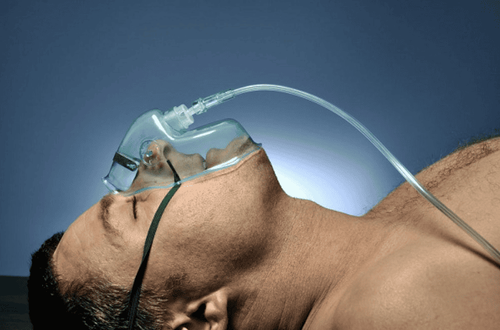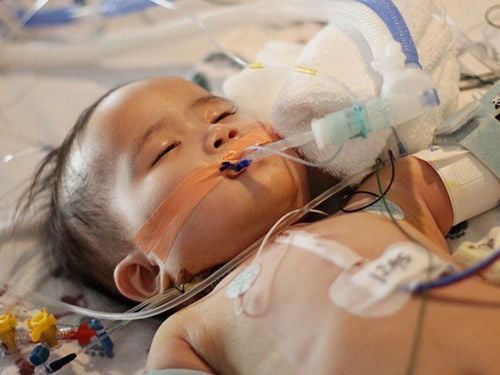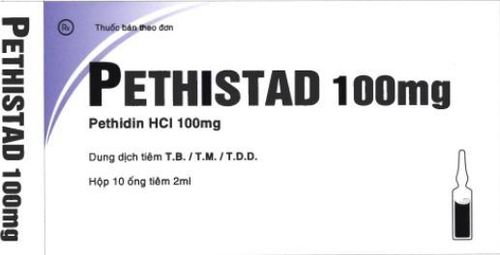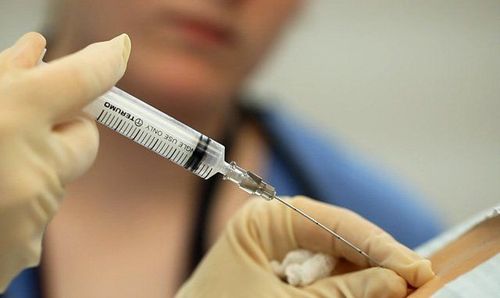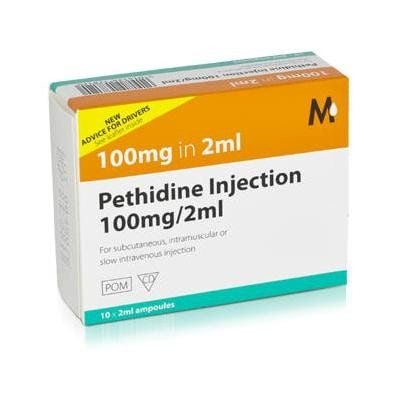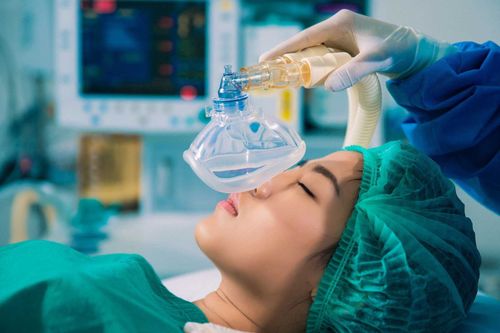This is an automatically translated article.
The article was consulted with Specialist Doctor I Nguyen Duc Thong - Anesthesiologist - General Surgery Department - Vinmec Danang International General Hospital.Preoperative assessment is an important part of the anesthesia, surgical unit. Pre-anesthesia visits help to reduce patient anxiety and reduce the risk of complications and operative mortality.
1. What is pre-anesthesia examination?
Pre-anesthesia examination is essential and legal before all surgeries. This is a very stressful period for the patient's psychology, so the meeting and exchange between the patient, relatives and anesthesiologist has a positive meaning to reduce the patient's anxiety.Purpose of pre-anesthesia examination:
Check the patient's condition before surgery Detect and treat comorbidities such as Cardiology, diabetes, liver disease, kidney disease... specialists in planning continuous treatment before - during and after surgery. Record the allergic status of NB. Agree with the surgeon the optimal time and method of treatment and determine the risk of surgery. Select an appropriate anesthetic and anesthetic plan; explain the advantages and disadvantages of the insensitive method for the patient to choose. Explain options for anesthesia to relieve pain after surgery. For example, epidural, nerve trunk, and sub-ultrasound regional anesthesia for patient peace of mind and confidence. Prognosis of possible difficulties in anesthesia-surgery, treatment planning. Prognosis of situations: difficult ventilation, difficult intubation, difficult spinal anesthesia, difficult venipuncture... Prognosis of patient's tolerance and ability to recover Prepare treatment plans if any abnormalities occur out. Explain carefully to the patient or family member and prepare psychologically. Results of pre-anesthesia examination must be clearly and legibly recorded in the pre-anaesthesia examination form and anesthesia medical record.

2. History examination - medical history
2.1 Current medications
Medications that the patient is taking can adversely affect anesthesia and surgery such as: antihypertensive drugs, diuretics, α and β antagonists, anticoagulants, antibiotics, corticosteroids, sedatives and hypnotics. .. medicines to treat diabetes , tuberculosis , asthma . The decision to continue or to stop certain drugs or to replace them with other drugs in the preoperative period depends on the severity of the disease, the effect of the drug on the disease or on the selected anesthetic, the influence of of drug discontinuation, half-life, etc. Allergies, drug reactions, side effects and drug interactions should also be explored.2.2 Medical history
Consideration should be given to the patient's current medical history, previous investigations and surgical diagnosis, current treatments, and response to treatment. Record preoperative symptoms of major disease for postoperative evaluation. Some diseases to note in pre-anesthesia examination: cardiovascular disease, diabetes, lung disease (pulmonary tuberculosis, asthma, COPD), thyroid disease, severe malnutrition, nervous system disease, patient have a history of hepatitis, jaundice, nephropathy, stomach ulcer...2.3. Family history
There is someone in the family who has had an unusual reaction to the anesthetic or has a history of malignant febrile illness.2.4 Geography
History of allergies Occupation Smoking, drug addiction Drinking alcohol General status, weight, height, BMI2.5 History of surgery
Affects organ function Affects surgical area Affects anesthesia, anaesthesia2.6 History of anesthesia
Anesthesia technique, used anesthesia Ventilation equipment used Invasive vascular technique if there are previous anesthesia-related complications.3. Physical examination
3.1 Vital signs
Patients will be measured height, weight, BMI, temperature, pulse, blood pressure, respiratory rate. Careful examination of surgical conditions affecting anesthesia (eg, endocrine-affecting thyroid disease and tracheal deviation).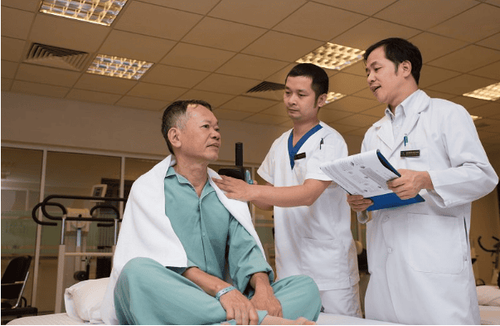
3.2 Examination of the airway
Look for symptoms specifically related to difficult airways: temporomandibular joint mobility, cervical spine maneuvers, oropharyngeal, head and neck examination, chin-to-chin distance, Mallampati classification, vision of pharyngeal structures and glottis under the laryngoscope (classified by Cormack and Lehane), examine the lumbar spine (curvature? dorsal skin infection?) Prepare necessary instruments, medications and equipment if suspected difficult airway.4. Subclinical
Complete blood count, blood group: Mandatory in all surgical patients. For patients with rare blood types, blood should be planned before surgery. Coagulation tests: evaluate the overall coagulation function. Biochemical tests: Electrolyte blood, liver function, kidney function, Bilan Lipid, blood glucose, thyroid hormone... should be done in patients under anesthesia or suspected of having disorders that need monitoring. Chest X-ray: Patients with symptoms of lung disease, cancer, airway obstruction, heart disease, history of heavy smoking, elderly. Electrocardiogram: Indicated in the following patients: Male > 45 years old, female > 55 years old Having history or clinical signs suggestive of cardiovascular disease Having risk factors for cardiovascular disease: alcoholism, drugs leaves, dyslipidemia, obesity, diabetes, systemic disease... Currently taking drugs with risk of cardiotoxicity: tricyclic antidepressants, doxorubicin. Echocardiography: Patients with a history and symptoms of heart disease, diseases affecting the heart (hypertension, myocardial ischemia, stenosis-open heart valve, diabetes, obesity, peripheral vascular disease. ...). If an infectious disease is suspected, further immunological testing should be performed. For example: hepatitis B, hepatitis C, syphilis, gonorrhea, tuberculosis... Cardiac enzyme test: applicable to critically ill patients with a history or risk of myocardial ischemia/myocardial infarction. Stress echocardiography: After consultation with cardiologist, if potential myocardial ischemia is suspected. Pulmonary function measurement: if patient has severe acute/chronic pulmonary disease. In summary, pre-anesthesia examination is an important step in helping patients reduce anxiety, trust and cooperate; help the anesthesiologist in resuscitation assess the patient's condition and possible risks during and after surgery.At Vinmec Hospital system, pre-anesthesia examination is a mandatory activity for patients before surgery/procedure. Through the pre-anesthesia examination, the anesthesiologist will understand the patient's pathology, assess the prognosis of risk factors, difficult airways during anesthesia to optimize and personalize the anesthesia - resuscitation plan and control the patient's condition. Post-operative pain control helped the surgery to be successful, the patient soon recovered and returned to normal activities. In addition, during pre-anesthesia examination, under the support of modern machines such as CT Scan, magnetic resonance imaging (MRI), color ultrasound, blood and urine tests... Symptoms, comorbidities will be detected, omitted in order to treat thoroughly and avoid complications during actual surgery.
Pre-anesthesia examination is a routine examination at Vinmec before surgery. Accordingly, the pre-anesthesia and anesthesia examination process at Vinmec is carried out methodically and in accordance with the standard procedures by a team of highly skilled anesthesiologists, modern machinery system, thus giving the best results. accurate, contributing significantly to the identification of the disease and the stage of the disease, from which the direction of treatment, minimizing complications during anesthesia contributes to ensuring a successful surgery.
Please dial HOTLINE for more information or register for an appointment HERE. Download MyVinmec app to make appointments faster and to manage your bookings easily.





